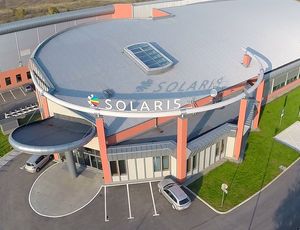
The 2017 Nobel Prize in chemistry was awarded to researchers who have contributed to the development of cryo-electron microscopy. The JU National Synchrotron Radiation Centre Solaris and the JU Małopolska Centre of Biotechnology are making efforts to purchase equipment that would allow them to use the same research techniques as the Nobel Prize winners. If they succeed, this will be the first such equipment not only in Poland but also in Central-Eastern Europe.
'Talks with the Ministry of Science and Higher Education about the purchase of the equipment are underway and we hope that the Nobel Committee decision will help bring them to a successful conclusion. We only want to be in charge of the apparatus that would be available to all research groups in Poland on equal terms. Thus, we would like to adopt the same model of access to large research infrastructure that has been successfully used in various research centres, including synchrotrons and apply it in the area of cryomicroscopy. The value of such a microscope is estimated at 25 million zlotys', explains Michał Młynarczyk the Deputy Director for Administration and Finance at the Solaris Centre.
Cryo-electron microscopy has revolutionised biomolecular research, allowing for studying proteins in their natural environment in 3D. Hence, it became possible to explore the structure of each molecule in an almost atomic resolution. This technique also enables researchers to watch molecule interaction and combination processes.
TEM cryomicroscopy was named the Method of the Year 2015 by the Nature journal and has been used by more and more leading research centres in the world. This type of microscope is not currently available in Poland and even in this part of Europe.
The TEM cryogenic microscope is a perfect research instrument for advanced research in materials engineering, chemistry, pharmacy, medicine, as well as molecular and structural biology. The effectiveness of this research tool is reflected by the number of research papers in this area.





